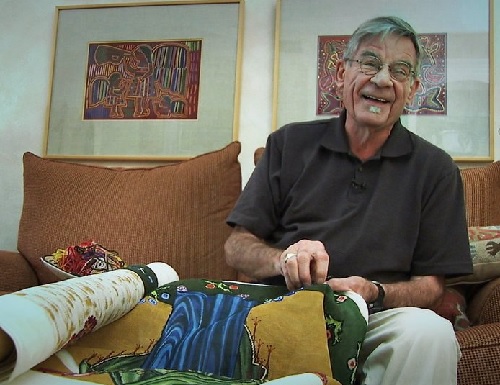|
A. W. Richard Sipe (1932–2018) By Terence McKiernan
Richard Sipe died Wednesday night, August 8, 2018, just before midnight, at his home in La Jolla, California, after a long illness. Sipe was a towering figure in the Catholic clergy abuse crisis and in Catholicism generally. He leaves behind a vital legacy. A. W. Richard Sipe truly invented the rigorous study of the clergy abuse of children: he created a disciplined method for thinking about the unthinkable. His groundbreaking books – A Secret World: Sexuality and the Search for Celibacy (1990) and Sex, Priests, and Power: Anatomy of a Crisis (1995) – made activism and change possible in the Catholic abuse crisis, and ultimately prepared the way for the #MeToo movement. Sipe’s work anticipated the convergence that we’re witnessing now in the activism for victims’ rights and child safety. He always saw the molestation of children by Catholic clergy as part of a larger reality in Catholicism and beyond. Sipe’s approach to the abuse of children by Catholic clerics was an unusual one. Beginning as a Benedictine therapist-monk, he helped hundreds of priests and religious with their difficulties in religious life, especially the challenges of celibacy. Because of those conversations, Sipe viewed the abuse of children by clergy through a wider lens than anyone else. Clergy abuse was better understood, he felt, within broader trends of clergy sexual misconduct, and by the same token, the Catholic system was brought into sharper focus if the clerical abuse of children was acknowledged to be a crisis basic to that system. Richard Sipe was fundamentally a scholar of clerical culture and the clerical system. His work in the early 1990s created a paradigm for understanding that system and the reasons why the abuse of children by clerics has flourished within it. His books emerged from his therapy practice, and were in a sense anecdotal, yet the statistical conclusions he came to have been borne out by events. His thinking on celibacy and the abuse crisis was informed by his happy marriage to psychiatrist Marianne Benkert, their parallel and mutual careers in therapy, especially with the victims of clergy abuse, and their experience of family life, raising their son Walter. Recently the Cardinal McCarrick case has confirmed Richard Sipe's warnings, going back decades, that McCarrick and many other prelates were harassing and abusing seminarians. Sipe had long emphasized the genealogy of clergy abuse. Rectors and staff at seminaries, he insisted, were often guilty of sexual misconduct with their students, who sometimes after ordination offended against young people. The same dynamic plays out in chanceries and the provincial houses of religious orders. Sipe worked to help seminaries teach celibacy as a mindful practice. But too often they remained places where abuse and harassment were countenanced and even encouraged. Sipe’s tireless work as an expert witness in hundreds of clergy abuse cases, from the 1990s until just a few months ago, showed the careful attention to documents that he developed as a scholar, the empathy for survivors that made him a good therapist, and the innovative thinking that has been a hallmark of his work. Especially valuable was his exploration of the methods that offending priests and their managers used to hide the truth: the bishops’ oaths of secrecy, the technique of mental reservation, and the church’s system of euphemisms and code words. Sipe’s effectiveness as an expert witness was based on sympathy and love for the survivors whose lives had been blighted by systemic abuse. Richard had a gift for friendship. He kept in touch with many survivors whom he had helped over the years, and was a frequent attendee and participant at the annual conference of the Survivors Network of those Abused by Priests. Remarkably, his solidarity with survivors of clergy abuse informed his ever deepening and ever skeptical engagement with the Catholicism of his youth. He was a whistleblower about abuse at St. John’s Abbey in Collegeville MN, where he had lived and worked as a monk, but he also retained a fondness for the place and for his former life as a student and a priest there. As a way of unwinding from long hours devoted to the clergy abuse crisis, Sipe became an accomplished needlepoint artist, and for many years he worked on large needlepoints of the Torcello mosaics – medieval Last Judgment mosaics in the Cathedral of Santa Maria Assunta on the island of Torcello near Venice. The subject of the Last Judgment preoccupied him, as can be seen in one of the poems he wrote late in life, included in his book I Confess. Until the end, Sipe reflected each day on the Bible readings in Living with Christ, to which he subscribed, and he wrote compellingly about New Testament themes in his last book of poems, Courage at Three AM. Richard Sipe has been a friend to BishopAccountability.org since our founding in June 2003, when he generously agreed to let us feature a quote by him on our original home page: "Secrecy and accountability cannot co-exist." When my colleagues and I think of our mentor and friend, we remember his kindness, his devotion to justice, his intelligence, his insight, his courage, his impish sense of humor, his balance and also his indignation, his phenomenal memory, his love of books and art, his curiosity about the human mind and heart, and above all his love for community and the company of friends.
|
.
Any original material on these pages is copyright © BishopAccountability.org 2004. Reproduce freely with attribution.
